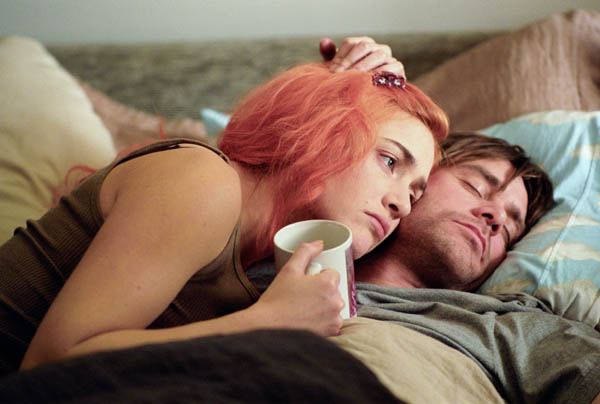
Lost causes, broken hearts, one-side love, and misunderstandings are occurrences that are sadly familiar for most anyone, and this may be at the crux for their attraction to the silver screen as well.
The following list looks at some of the crowning examples of unrequited love in film, though it’s not nor does it try to be definitive. We’ve deliberately side-stepped some of the populist examples such as Titanic or Gone With the Wind in favor of some less celebrated works as well as sterling examples from across the world. Get your tissues ready and brace yourself for a good cry.
30. Head-On (2004)
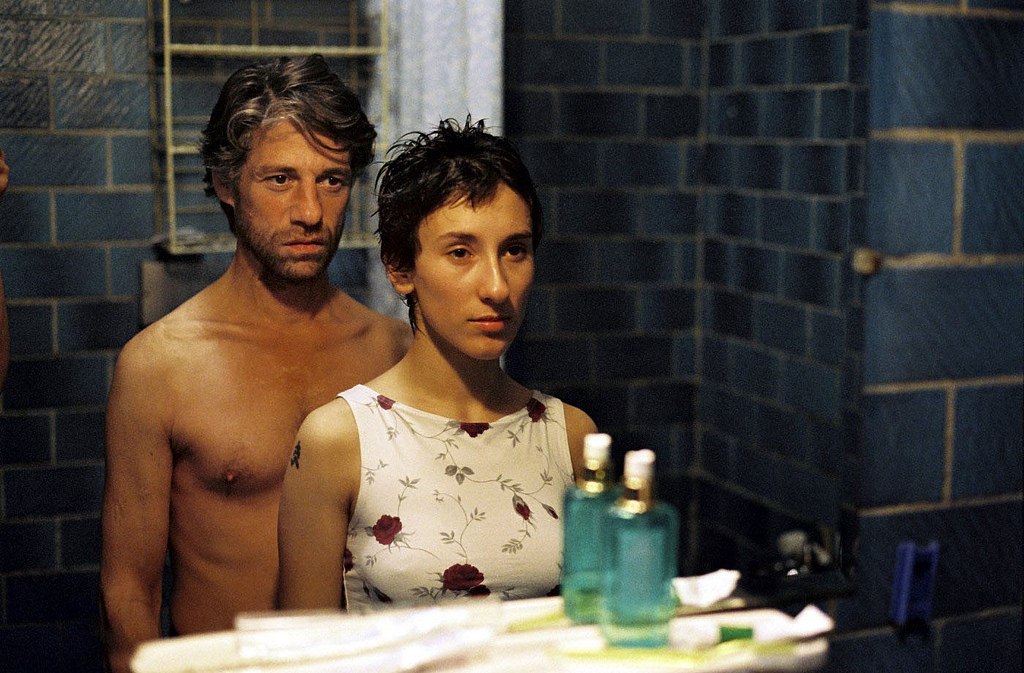
Writer-director Fatih Akin pulls no punches in this punk rock surrealist amour fou extravaganza in the nervy and often unsettling but undisputably brilliant German arthouse hit, Head-On.
Sibel (Sibel Kekilli, excellent) is a suicidal manic depressive and very much at risk young woman who finds herself in a marriage of convenience with car crashing and hard drinking Cahit (Birol Ünel, also excellent) shortly after the pair meet at an Hamburg psychiatric ward.
The sham marriage prevents Sibel from an arranged marriage she’s no interest in – her family are devout Muslims – and Cahit believes that such an act of altruism might somehow redeem and rescue his wrecked and violent life. Tragicomedy ensues as the mismatched pair slowly find themselves falling in love.
One of Akin’s most inspired flights of fancy in Head-On – and there are many – involves a Greek chorus of talented Turkish musicians whose interludes add depth and something of a surrealist sting to the punk poetics that crackle and pop like fireworks throughout this unforgettable marvel of a movie.
29. The Notebook (2004)
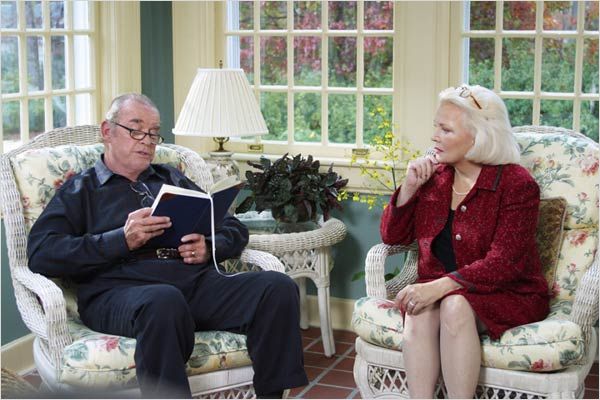
Based off of the Nicholas Sparks novel of the same name, director Nick Cassavetes’ The Notebook is a maudlin but nonetheless moving melodrama buoyed by a strong cast which includes Ryan Gosling, Rachel McAdams, James Garner and Gena Rowlands (also Cassavetes’ mother).
Granted, sophisticated audiences may balk at the emotional blackmail and unabashed manipulation brazenly paraded throughout this treacle-y yet poised tale of lovers ripped from each other’s arms due to World War II and societal obligations only to reacquaint years later after starting new lives. It’s a multiple-tissues affair that’s target audience will joyously forgive all the gushing, syrupy sidesteps to be swept up in the soapy heartrending saga and its nostalgic flashbacks. A charmer.
28. Pretty in Pink (1986)
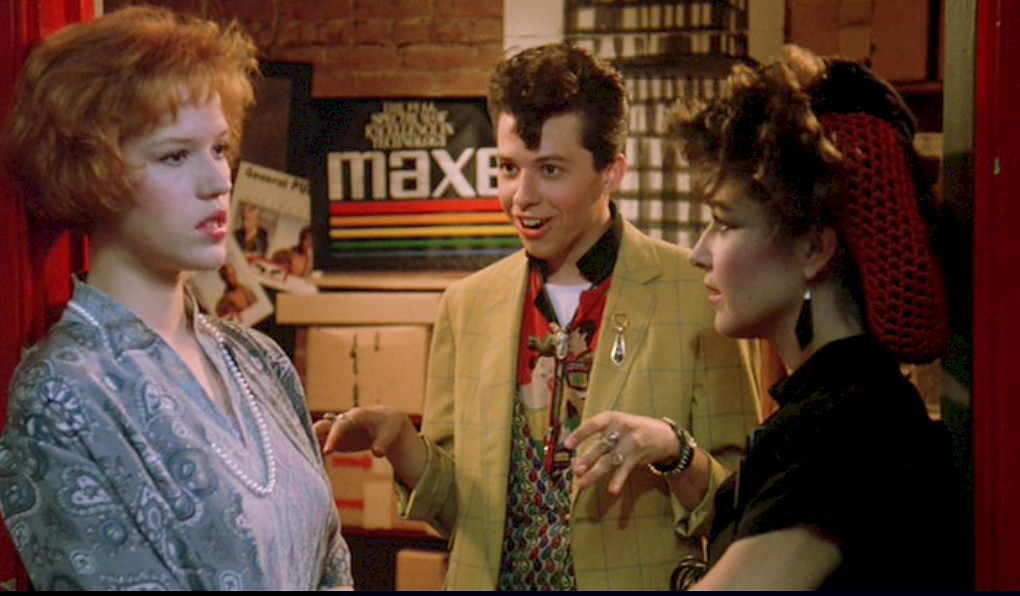
One of the treasured and admired “Brat Pack” cornerstones of 1980s populist cinema, Pretty in Pink was written by John Hughes (The Breakfast Club), directed by Howard Deutch (Some Kind of Wonderful), stars Molly Ringwald (Sixteen Candles) and involves cliquey American high schoolers, coming-of-age bromides, and young love. What’s not to melt for given such solid and fun fundamentals?
Will relatable and gregarious high school senior Andie Walsh (Ringwald) find love via her crush Blain McDonough (Andrew McCarthy), even though he’s a rich kid preppie and she’s a wage-earning working class gal? What about her pining BFF Phil “Duckie” Dale (Jon Cryer) who loves her beyond their platonic arrangement? Is that a young James Spader as a preppie prig?
Bonus points for Harry Dean Stanton as Andie’s lovable hangdog pop, and the titular Psychedelic Furs single – the killer soundtrack also boasts Echo and the Bunnymen, New Order, and The Smiths amongst others – all of which help the film transcend its familiar Cinderella story familiarity. Pretty in Pink wears well, and the adolescent insecurities it addresses add oomph to this dressy and adorable fiction.
27. Broadcast News (1987)
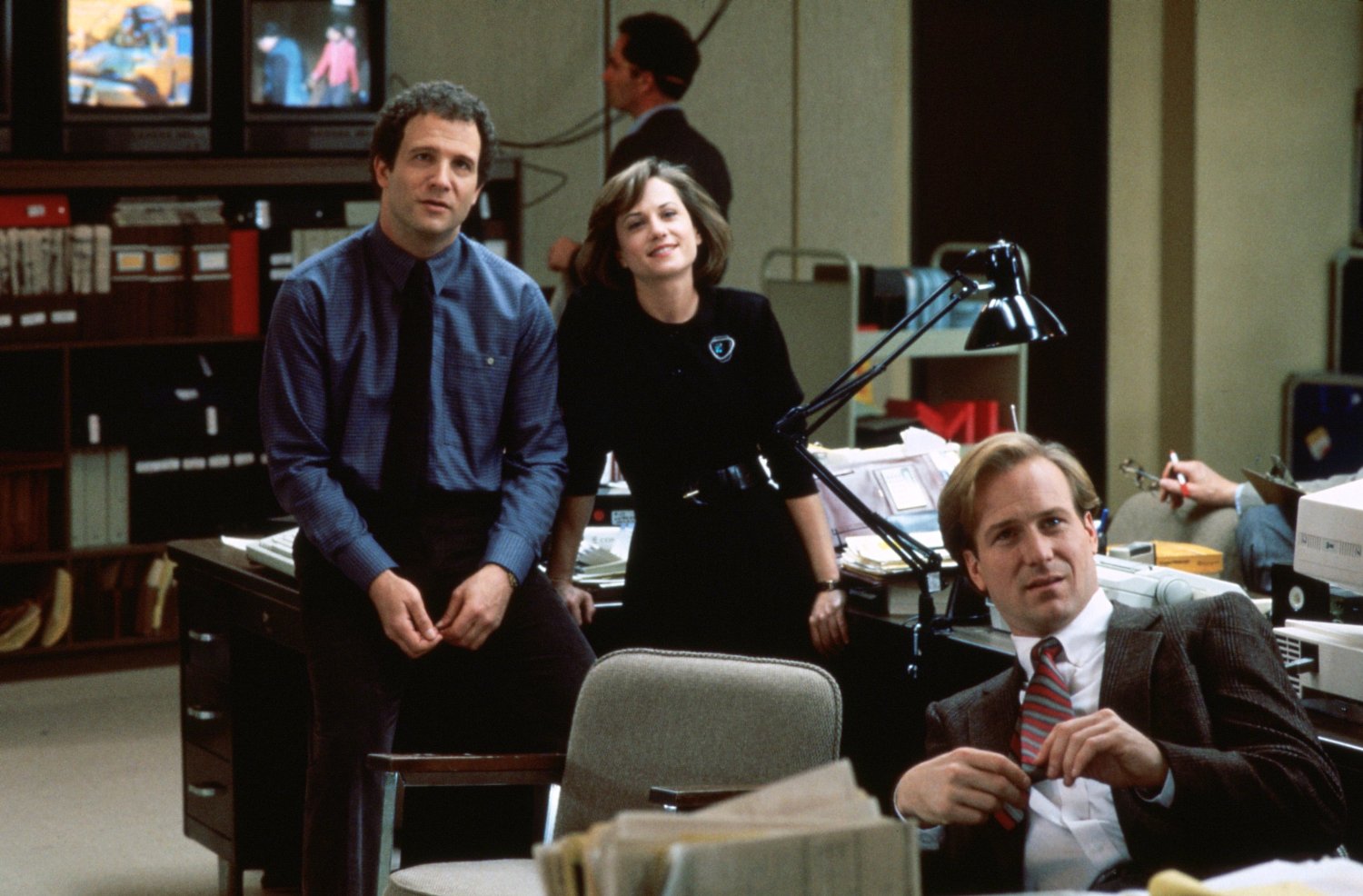
This insightful, rich, and rewarding dramedy directed, produced and written by James L. Brooks (Terms of Endearment) may be set in the dog-eat-dog world of television news reporting, but at its center beats the heart of unanswered love between cantankerous news reporter Aaron Altman (Albert Brooks, wonderful) and his bound, determine, and neurotic producer Jane Craig (Holly Hunter, brilliant).
Add affable anchorman Tom Grunick (William Hurt) and some truly luminous lensing from cinematographer Michael Ballhaus (Goodfellas), who, along with Hurt, Hunter, and Brooks (both of ‘em) were all given Oscar nominations for their considerable efforts, and the results are never less than fascinating, with a love-triangle paradigm that will have viewers tickled and tortured in equal measure.
That such genuine heartache, rattled nerves, tragedy, and humiliation can be so entertaining is testament to Brooks’ brilliance as a thoughtful storyteller. Rarely do ensemble films reach such dizzying heights.
26. The Fly (1986)
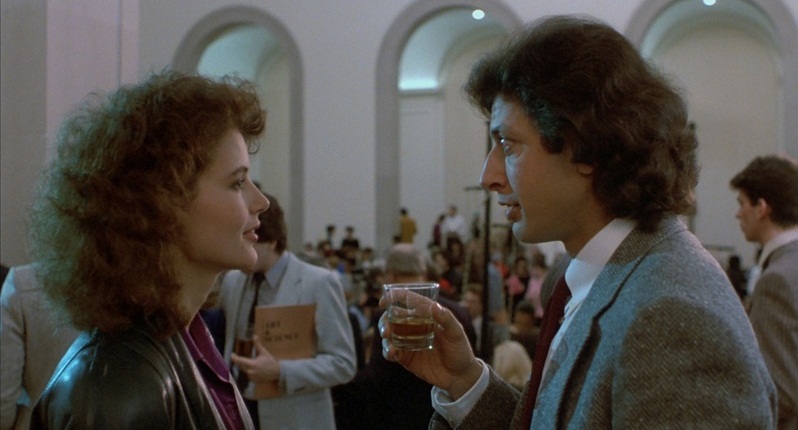
The sweet romance that begins to blossom early on between eccentric scientist Seth Brundle (Jeff Goldblum) and eager investigative journalist Veronica Quaife (Geena Davis) in David Cronenberg’s The Fly is destined to die prematurely, and painfully, too.
Using very little of the B-movie premise of the 1958 Vincent Price vehicle that inspired it, Cronenberg’s take on the human-housefly hybrid is a repulsive, stomach-churning, and yes, heartbreaking slice of speculative fiction told with his signature style and fondness for special effects fueled gore.
Seth’s close to a breakthrough with his matter transporter when something goes awry after a drunken show of bravado fuses his DNA with that of the eponymous insect. The resulting tragic love story contains elements of Gothic horror and was Cronenberg’s breakthrough film – it also established Goldblum and Davis as major stars – widely considered a touchstone of subversive Canadian cinema, The Fly manages to be as romantic as it is repulsive.
25. The Remains of the Day (1993)
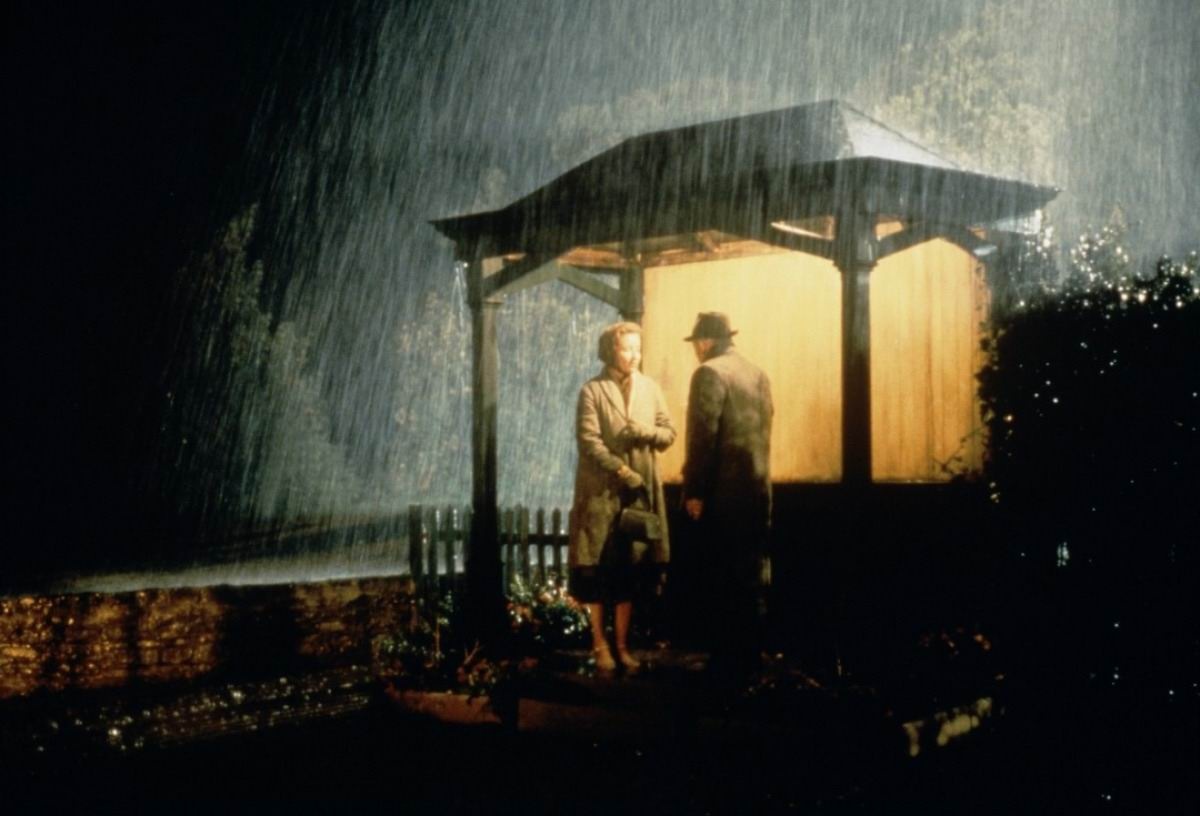
Director James Ivory’s tale of obsession and repression stars Anthony Hopkins as James Stevens, a fanatically devoted butler who falls for housekeeper Miss Kenton (Emma Thompson, delightful) in this lovely adaptation of the Kazuo Ishiguro prize-winning novel.
A subtle, and mature work, The Remains of the Day has a glacial pace, perhaps, but a rewarding one as its characters are richly detailed and the love story builds an intensity that is often absent in mainstream cinema. Period details are meticulous, lengthy flashbacks offer a richly detailed backstory that’s ideal for the discriminating viewer who likes to watch a story unfold in a measured manner with an edifying and relaxed footstep.
24. A Short Film About Love (1988)
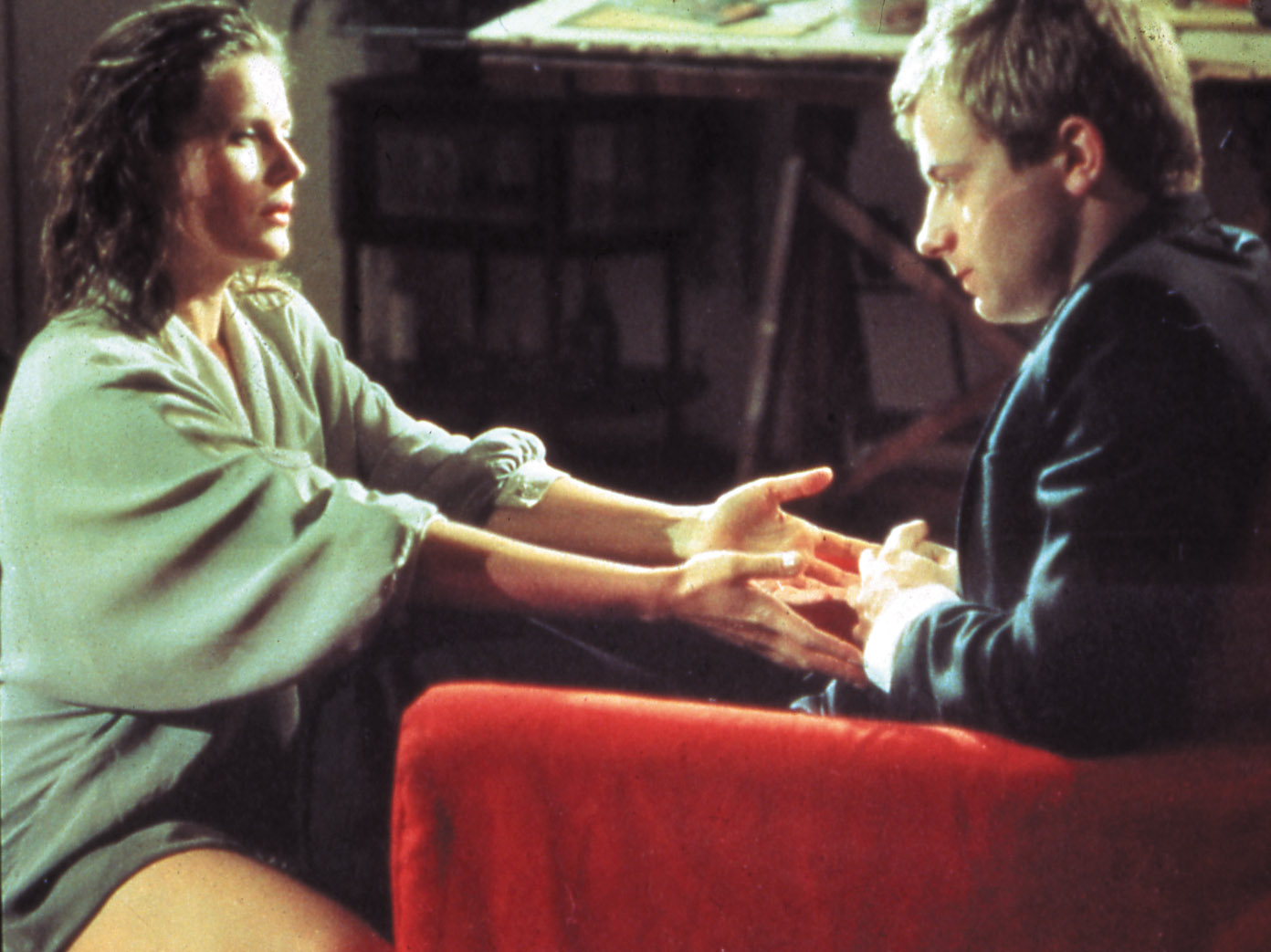
Polish auteur Krysztof Kieślowski (The Three Colors Trilogy) was firing on all cylinders with A Short Film About Love – the sixth part of his ten-part anthology, Decalogue – the achingly sweet tale of a young postal worker, Tomek (Olaf Lubaszenko), smitten with an unattainable older woman, Magda (Grazyna Szapolowska).
Like the other complex narratives in Kieślowski’s Decalogue, A Short Film About Love is set in a Warsaw apartment building, and in keeping with that marvellous series, this film packs a hefty emotional wallop that completely justifies Kieślowski’s status as one of the most celebrated and inspired filmmakers of his generation. It’s an unforgettable viewing experience, on the surface deceptively simple, but with deeply resonate flourishes and build, with a conclusion that’s transcendent and affectional by any definition.
A Short Film About Love is a tiny monument and a shiny showpiece, and a perfect introduction to Kieślowski.